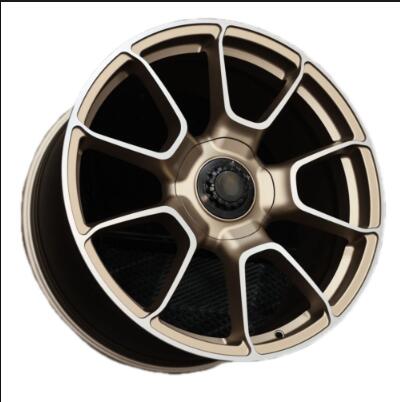Do Alloy Wheels Count as Modifications?
When it comes to personalizing and enhancing a vehicle, one of the most popular and visually impactful changes car owners make is swapping factory wheels for alloy wheels. Alloy wheels, often lighter and more stylish than their steel counterparts, can alter the appearance and performance of a car dramatically. But, for insurance, registration, and legal purposes, do alloy wheels count as modifications? In this article, we will explore what modifications mean in the automotive context, how alloy wheels fit into this definition, and what implications this has for car owners.
What is a Vehicle Modification?
A vehicle modification is any change made to a car that alters it from the manufacturer’s original specification. Modifications can range from minor aesthetic changes, such as adding stickers or changing seat covers, to significant mechanical upgrades like engine swaps or suspension lifts. The key factor is that a modification changes something about the car from how it was delivered from the factory.
Vehicle modifications are often categorized as either cosmetic or performance-related. Cosmetic modifications include changes that affect the look of the vehicle without changing how it drives, such as paint jobs, body kits, or upgraded wheels. Performance modifications, on the other hand, impact how the vehicle operates, such as engine tuning, improved exhaust systems, or upgraded brakes.
Alloy Wheels: A Popular Upgrade
Alloy wheels are wheels made from an alloy of aluminum or magnesium, or sometimes a mix of both. They are lighter than steel wheels, which can improve handling, acceleration, and fuel economy. Besides their technical benefits, alloy wheels are also valued for their aesthetic appeal. They are available in a range of designs, finishes, and sizes, allowing car owners to personalize their vehicles.
Due to their popularity and the advantages they offer, many vehicles—especially higher-end models—come equipped with alloy wheels as standard. However, for cars that come with steel wheels, upgrading to alloys is a common aftermarket modification.
Do Alloy Wheels Qualify as Modifications?
The short answer is yes: fitting alloy wheels to a vehicle does count as a modification. This is because it changes the car from its original factory specification, even if the change is relatively minor compared to, say, installing a turbocharger or a body kit.
Most insurance companies and regulatory bodies classify any non-standard wheels as a modification. This applies whether you are upgrading from steel to alloy wheels, changing the size of your alloys, or fitting wheels of a different design or finish than those supplied by the manufacturer. Even switching to aftermarket alloy wheels that are the same size and similar style as the originals can be considered a modification.
Why Does This Matter?
There are several reasons why it is important to recognize alloy wheels as a modification:
1. Insurance Implications
When you apply for car insurance, the insurer asks if your car has been modified. If you fail to declare modifications, such as aftermarket alloy wheels, your policy may be invalidated in the event of a claim. This could leave you without coverage for repairs or liability. Some insurers may charge a higher premium for modified cars, while others may not insure them at all.
2. Legal and Safety Considerations
In some countries or regions, vehicle modifications must be approved by relevant authorities. Fitting alloy wheels of a different size or specification could affect the car’s handling and safety. Regulations may specify acceptable wheel sizes, load ratings, or require certain safety standards. If your wheels do not comply, your car may fail inspection, and you could be fined.
3. Resale Value
While alloy wheels can enhance a car’s appearance and value, non-standard wheels may reduce desirability for some buyers or dealers, especially if the change is extreme or does not suit the car.
What If the Alloy Wheels Are Manufacturer Fitted?
If your vehicle came from the factory with alloy wheels, or if you upgrade to wheels offered as an official option by the manufacturer or dealer, these are typically not considered modifications. However, if you fit wheels from another model or use aftermarket brands, these should be declared to your insurer.
What Should You Do If You Want Alloy Wheels?
If you are considering fitting alloy wheels to your car, it is important to:
- Check your insurance policy: Contact your insurer to see how fitting alloy wheels will affect your coverage and premiums.
- Ensure compatibility: Make sure the new wheels are the correct size, offset, and load rating for your car. Improperly fitted wheels can cause handling problems or excessive wear.
- Follow local regulations: Check if there are any legal requirements or restrictions on wheel modifications in your country or region.
- Keep documentation: Save receipts and records of any modifications in case you need to provide proof to your insurer, buyer, or authorities.
Conclusion
Alloy wheels are one of the most common and desirable upgrades for car enthusiasts. They offer both visual and performance benefits, but it is important to remember that they do count as a modification in the eyes of insurers and regulators. Always declare any changes you make to your vehicle, no matter how minor they may seem. This will help ensure you stay legal, safe, and fully insured, allowing you to enjoy your new alloy wheels with peace of mind.


